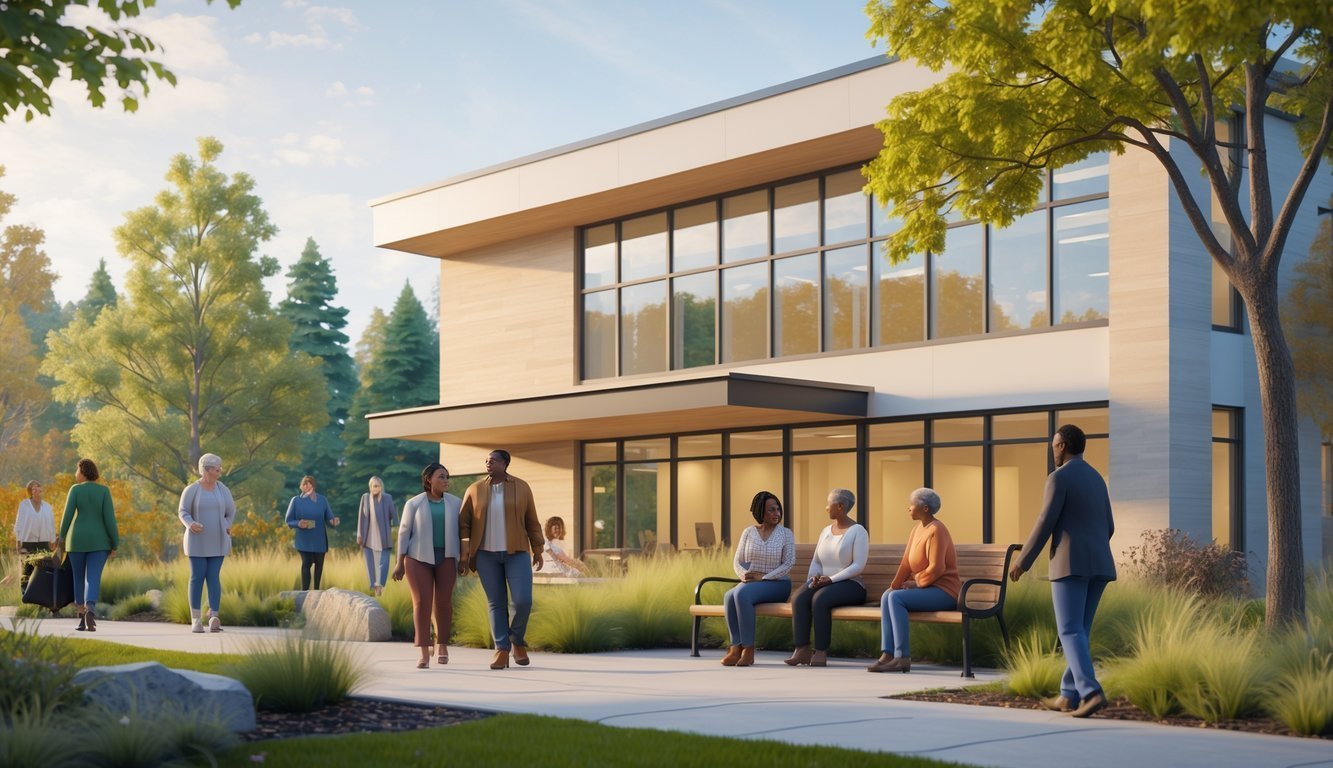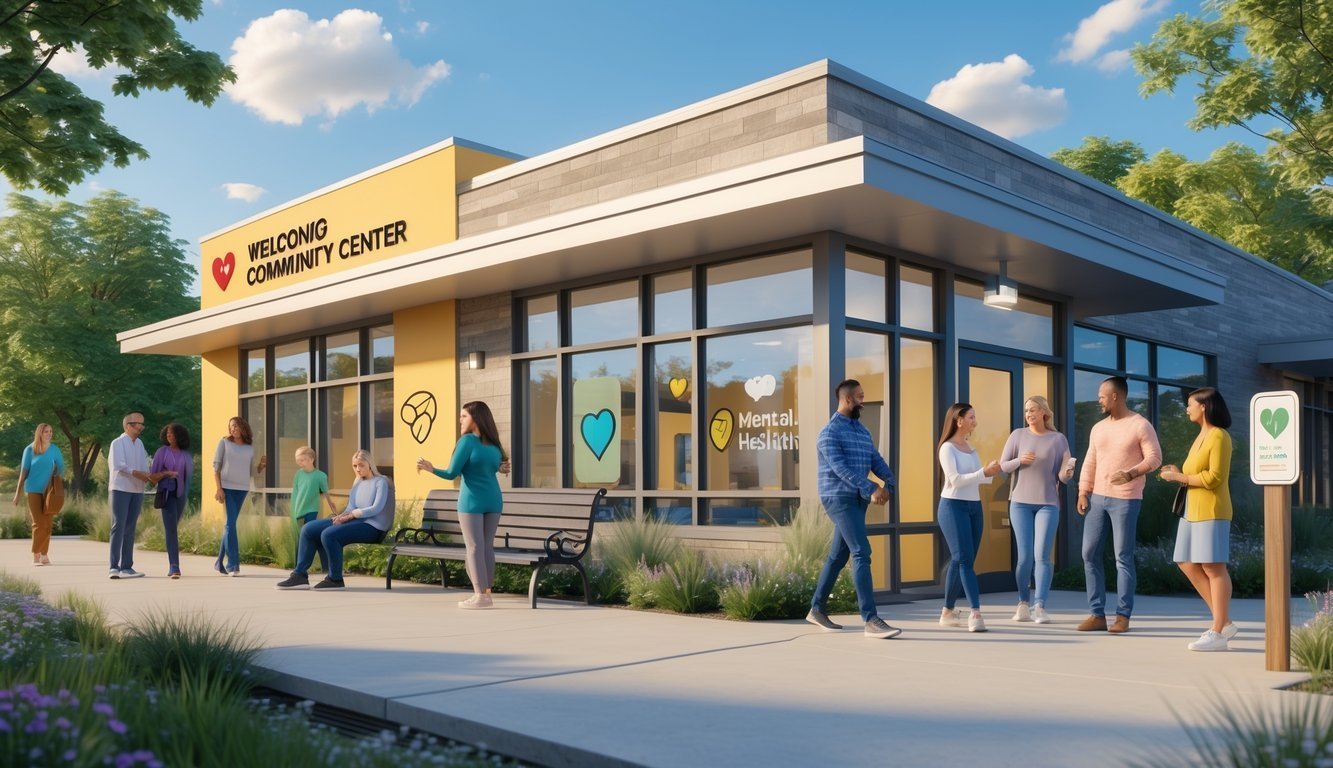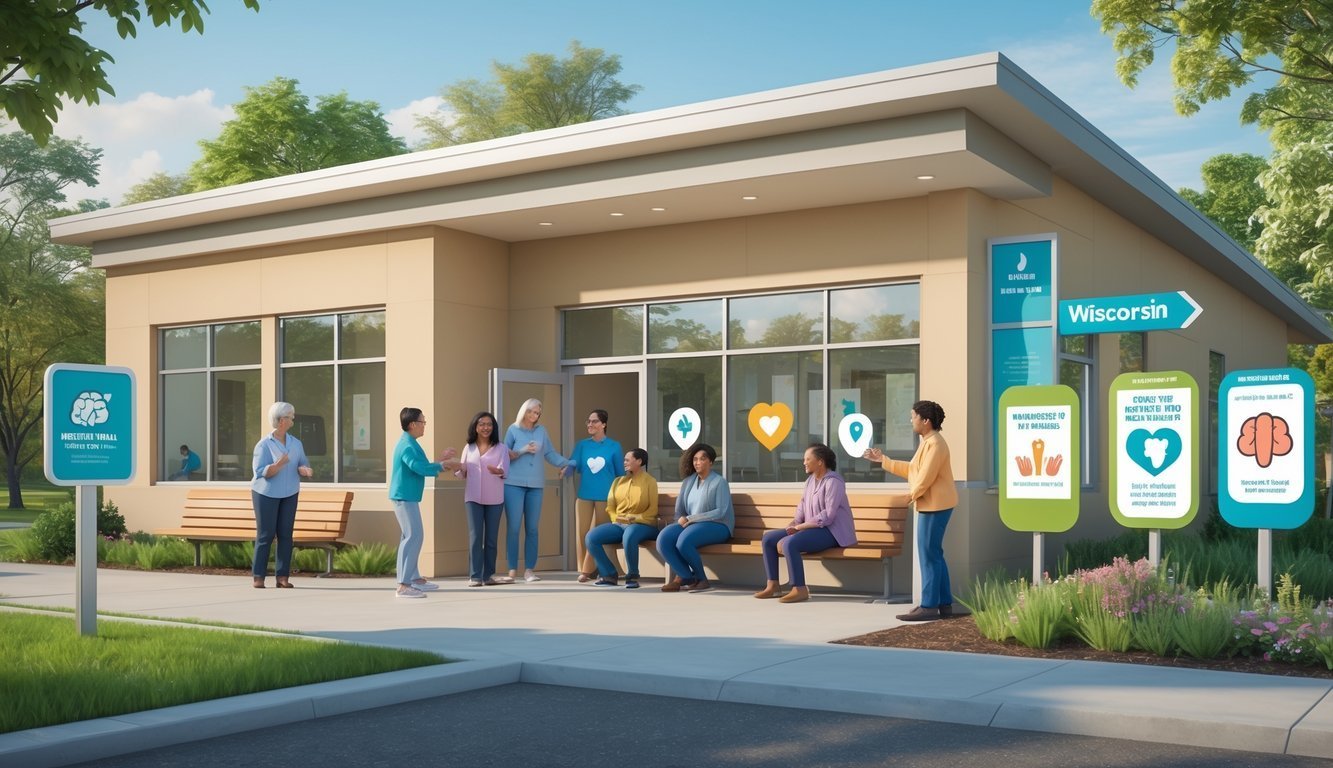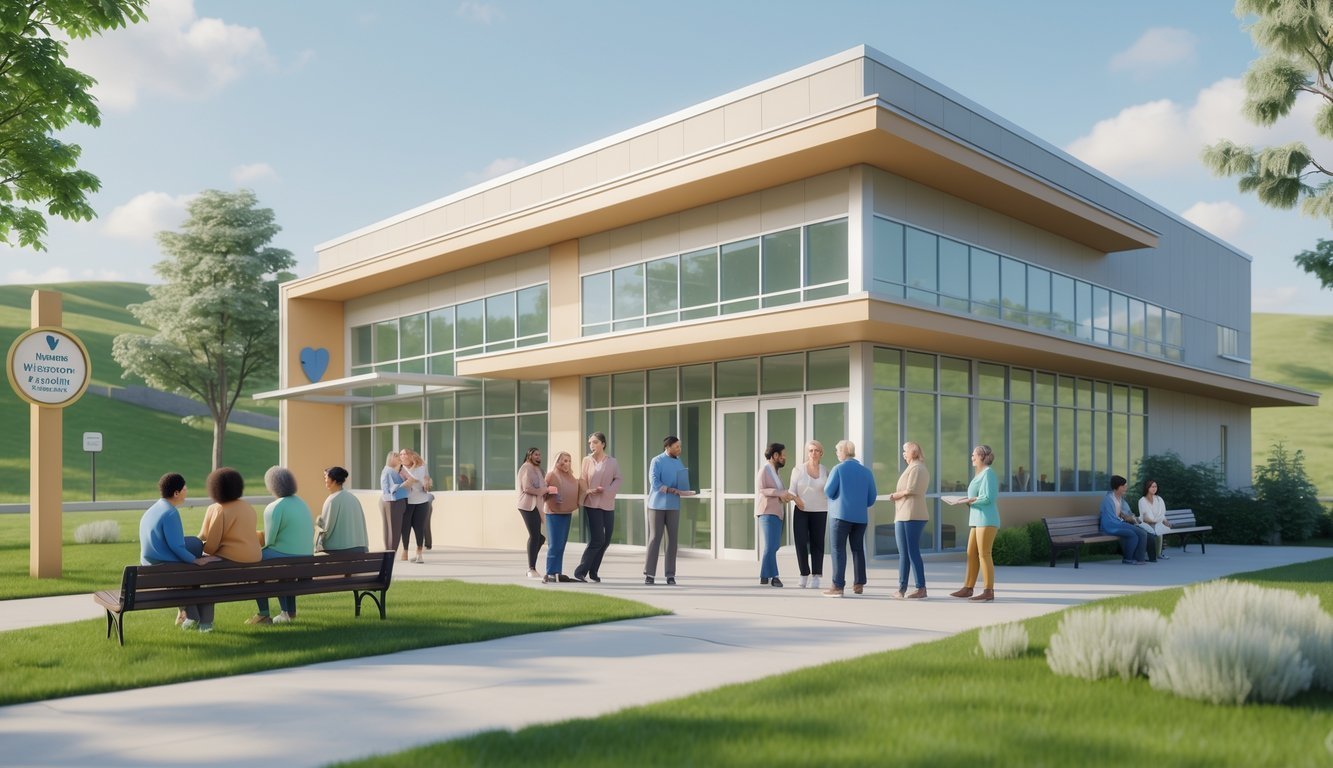PsychNewsDaily Publishers
100 Summit Drive
Burlington, MA, 01803
Telephone: (320) 349-2484
PsychNewsDaily Publishers
100 Summit Drive
Burlington, MA, 01803
Telephone: (320) 349-2484
Wisconsin offers numerous free mental health services, including counseling, crisis intervention, support groups, and therapy through community centers, universities, and nonprofit organizations.

Mental health issues touch so many lives, but paying for treatment can stop people from getting the help they need. If you’re dealing with depression, anxiety, or anything else in Wisconsin, you’re not alone. You shouldn’t have to skip care just because of money worries.
Wisconsin has a lot of free mental health services. You’ll find community health centers, crisis hotlines, support groups, and state-funded programs that offer counseling, therapy, and emergency care at no charge. Whether you need urgent help or ongoing support, there’s something for you, and you don’t need to worry about your income holding you back.
Figuring out what’s out there and how to get started can feel overwhelming. Wisconsin built a pretty solid network of programs and providers, all set up to help people get mental health care without big bills or insurance headaches.

You’ll find free mental health services in Wisconsin through state programs, university health centers, and community groups. There’s crisis help, counseling, therapy, and special programs to make sure money isn’t a barrier to care.
Free mental health care in Wisconsin covers a bunch of options. You can get individual counseling with licensed therapists.
Many places offer group therapy sessions, which often focus on things like anxiety, depression, or addiction recovery.
Crisis intervention teams jump in during emergencies and are available 24/7 in a lot of counties. Crisis mental health services are just a call away.
Some programs also help with case management, connecting you to other resources like housing or job support.
Other services you might find:
The mental health system in Wisconsin has different levels. State money funds community mental health centers in every county.
Universities offer services to students, and sometimes to others nearby. University Health Services mental health providers give confidential care in safe spaces.
Primary care doctors often team up with mental health specialists to cover all your needs.
Main features include:
State taxes, federal grants, and healthcare programs pay for these services, so many are free for residents.
Different organizations step up to provide free mental health care in Wisconsin. Community mental health centers are the main go-to in most places.
University counseling centers help students, and some also run group therapy sessions or community training.
Nonprofits run special programs, often focused on groups like veterans, teens, or people dealing with substance use.
You’ll see these types of providers:
Staff can include licensed social workers, counselors, psychologists, and sometimes psychiatrists who prescribe medication if needed.

Knowing where to look is half the battle when you need free mental health care. You’ve got options like online directories, local organizations, and even your insurance plan.
If you’re a student, check out university health services first. UW-Madison’s mental health services offer confidential support and quick “Let’s Talk” consultations.
For kids and teens, your local school district might have help. The Wisconsin Department of Public Instruction lists school-based services for younger folks.
Online places to check:
Walk-in crisis centers are another option. You don’t need an appointment, just show up if you need help fast.
Try calling your county’s crisis hotline first. Most counties have 24-hour lines with trained staff ready to talk.
Reach out directly to community health centers. Many use sliding fee scales, so you might pay nothing or just a little, depending on your income. Ask about financial help when you call.
Faith-based groups like churches often offer free counseling to anyone in the community.
When you call, you might want to ask:
See if you’re eligible for BadgerCare Plus, Wisconsin’s Medicaid program. It covers mental health care for free if you qualify.
Look over your insurance benefits. Some plans cover mental health with small copays or deductibles.
Ask clinics about payment plans. A lot of places will work with you to set up something affordable.
If you work for the state, check out wellness programs. Wisconsin state employees can even earn rewards for health activities.
Free or low-cost options often include:

Wisconsin has a wide range of free mental health resources. You’ll find statewide groups, county programs, community clinics, and online help. Services span crisis support, counseling, support groups, and educational opportunities.
NAMI Wisconsin leads the way in mental health advocacy. They run free support groups, classes, and resources for people and families dealing with mental illness.
NAMI offers:
NAMI has affiliates in cities like Milwaukee, Madison, Green Bay, and Eau Claire. These local groups hold regular meetings and special programs.
You can call their helpline to get connected to local resources. Their website lists mental health services all over Wisconsin.
All 72 counties in Wisconsin provide community mental health care through local health departments. Many offer sliding scale or free services, depending on your income.
County services often include:
Milwaukee County’s Behavioral Health Division and Dane County’s Department of Human Services both offer a range of mental health programs.
Community health centers across the state also provide free care, especially for those with low income or no insurance.
Counties often team up with nonprofits for special programs. These might focus on veterans, youth, or families.
Major cities in Wisconsin have free mental health clinics. You can walk in for crisis help or get ongoing treatment.
You’ll find clinics in:
Rural areas use mobile crisis teams and telehealth. Some clinics stay open evenings and weekends, which helps if you’re working during the day.
Faith-based groups also have free counseling. Many churches have trained counselors for anyone who needs support.
University campuses give free services to students, and sometimes to the public. UW-Madison’s mental health services are a good example.
Telehealth mental health services have really grown in Wisconsin lately. A lot of providers now offer free online counseling and support groups.
Online services you can use:
The 988 Suicide and Crisis Lifeline gives 24/7 phone and chat support. You’ll connect with local crisis centers at no cost.
Some apps and websites are made for Wisconsin residents, offering self-help tools, educational info, and peer support.
Many clinics now mix in-person and online care. That makes it easier for people in rural areas or without reliable transportation.
Wisconsin has a variety of free mental health treatment options. You’ll find different levels of care and support to fit your needs.
Individual Counseling is probably the most common. You can talk through your feelings and thoughts one-on-one with a counselor.
Community mental health centers offer this for free or on a sliding scale, and they usually accept Medicaid.
Group Therapy Sessions bring people together who face similar challenges. These sessions cost less to run and give you a chance to hear from others going through the same thing.
Crisis intervention services offer immediate help during emergencies. Hospitals and community centers have 24-hour crisis support at no charge.
Peer Support Programs connect you with people who’ve been in your shoes. These focus on sharing experiences and recovery tips, not just clinical care.
Some programs mix and match treatment types. You might get individual counseling along with group sessions and peer support all in one plan.
Make sure your provider has the right licenses and credentials. Licensed social workers, counselors, and psychologists all meet state training requirements.
Accreditation from groups like IACS shows university counseling centers meet high standards. That’s a good sign of quality.
Ask about how they approach treatment and if they use methods that research shows actually work.
Quality care should include regular check-ins about your progress. You’ll want to notice improvements in your symptoms and daily life within a few months.
Good programs offer crisis support between appointments, like phone check-ins or emergency services.
See if your provider offers culturally responsive care. The best mental health services respect your background, beliefs, and how you like to communicate.
Recovery from mental health struggles usually takes more than just a few therapy sessions. You’ll find plenty of free programs out there that help you keep moving forward after formal treatment ends.
Support Groups meet up in local spots. Most groups focus on things like depression, anxiety, or healing from trauma.
Case Management Services connect you with other help you might need. A case manager might help you find housing, job training, or medical care.
Some programs run alumni groups for folks who’ve finished treatment. These groups give you a chance to stay connected with peers and avoid feeling alone while you recover.
Crisis Prevention Planning shows you how to spot warning signs early. You’ll pick up steps to take before things get worse.
Many free services also include support and education for families. Your family can learn ways to help you out as you recover.
You can use mobile apps and online resources to get support between in-person visits. These tools help you work on coping skills and keep track of your mood or symptoms.